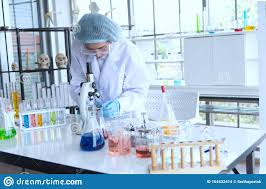ALLERGIC DERMATITIS
What is Allergic Dermatitis?
Allergic dermatitis, also known as allergic eczema, is a common skin condition characterized by red, itchy, and inflamed skin. It occurs when the skin comes into contact with an allergen or irritant, triggering an immune response. This condition can be chronic and recurring, causing significant discomfort and affecting the quality of life of those who suffer from it. While there are various treatment approaches available, Ayurveda offers a holistic and natural approach to managing and treating allergic dermatitis. In this article, we will explore the different aspects of allergic dermatitis and how DAD Ayurveda provides an effective treatment approach.
Allergic dermatitis, or allergic eczema, is a prevalent skin disorder that presents with symptoms of redness, itching, and inflammation. It occurs when the skin is exposed to a substance that the immune system identifies as harmful, resulting in an allergic reaction. This condition can be chronic, lasting for an extended period and reoccurring frequently. The discomfort caused by allergic dermatitis can greatly impact an individual’s quality of life.
Traditional treatment options for allergic dermatitis often involve the use of topical creams, ointments, or oral medications to manage symptoms. While these methods may provide temporary relief, they often come with unwanted side effects and do not address the root cause of the condition. This is where Ayurveda, a holistic system of medicine originating from India, offers a natural and comprehensive approach to treating and managing allergic dermatitis.
Ayurveda views allergic dermatitis as an imbalance in the body’s doshas, or energy forces, particularly the Vata and Pitta doshas. These imbalances can occur due to various factors such as improper diet, stress, or exposure to toxins. Ayurvedic treatment aims to restore balance to the doshas and strengthen the immune system, allowing the body to heal itself.
DAD Ayurveda, a leading Ayurvedic clinic, provides an effective treatment approach for allergic dermatitis. Their approach involves a thorough assessment of an individual’s dosha imbalance and overall health. Based on this assessment, a personalized treatment plan is created, which may include dietary and lifestyle modifications, herbal formulations, detoxification techniques, and stress management strategies.
The dietary modifications suggested by DAD Ayurveda focus on avoiding allergenic foods and incorporating immune-boosting ingredients. This helps to reduce the inflammation and sensitivity associated with allergic dermatitis. Additionally, certain herbs and herbal formulations are prescribed to strengthen the immune system, alleviate itching, and promote skin healing.
Detoxification techniques, such as Panchakarma, are also utilized in Ayurvedic treatment for allergic dermatitis. Panchakarma involves a series of therapeutic procedures, including massages, steam treatments, and enemas, to eliminate toxins from the body and improve overall health. This helps to eliminate the underlying causes of allergic dermatitis and prevent future flare-ups.
Stress management is another vital aspect of Ayurvedic treatment for allergic dermatitis. Stress can worsen symptoms and trigger flare-ups. DAD Ayurveda provides techniques such as meditation, yoga, and relaxation exercises to manage stress, promoting overall well-being and reducing the likelihood of allergic reactions.
In conclusion, Ayurveda offers a holistic and natural approach to managing and treating allergic dermatitis. By addressing the underlying imbalances in the body and strengthening the immune system, Ayurvedic treatment aims to provide long-lasting relief from the symptoms and improve the quality of life for those suffering from this condition. DAD Ayurveda’s personalized treatment plans, including dietary modifications, herbal formulations, detoxification techniques, and stress management strategies, provide an effective and comprehensive approach to managing allergic dermatitis.
Allergy or contact dermatitis is an itchy skin condition caused by an allergic reaction to skin contact. Individuals with allergic contact dermatitis usually develop the condition within a few months of exposure. ACD is considered the most prevalent form of immunotoxicity found in humans. Its symptoms are dry, itchy, scaly skin, cracks behind the ears, rashes on the cheeks, hands and feet. This condition can result in disruption of family or social life and result in loss of work.
Allergic contact dermatitis is a manifestation of an allergic reaction caused by contact with a substance. Symptoms include red bumps that may be moist, weeping blisters that are warm, tender, and oozing, and later become scaly, thickened sores.
The skin is the largest organ in our body with a surface area of more than six feet, which is about 16% of our total body weight.
Basically the functions of the skin are protection, sensation, excretion, heat regulation and synthesis of vitamin D.
Naturally fresh and healthy skin is the protector and expression of beauty of our body, whereas unhealthy skin is a real abomination to our body which creates vivid barriers in the expression of true beauty.
According to Ayurveda, dermatitis is not only caused by allergies, but it can also arise due to irregularities in internal metabolism which can be due to several factors:
Eating Habits: Irregular intake of food, excessive consumption of oily food, spicy food, unhealthy food, canned food, frequent use of soft drinks and other beverages, junk food etc.
Physical activities: such as exposure to the sun, exposure to dust.
Chemical exposure.
Psychological factors: depression, anxiety, sleeplessness.
How Does Allergic Dermatitis Manifest?
Allergic dermatitis is a hypersensitivity reaction that affects people who have been sensitized prior to contact. According to Ayurveda, allergic contact dermatitis is caused by the above factors which lead to an imbalance of vata and kapha (two basic elements of the body) leading to dyspepsia (agnimandhya). This results in a build-up of toxins that impair the blood and medho dhatu (sebaceous glands) thus causing the symptoms of allergic contact dermatitis.
How to manage Allergic Dermatitis through Ayurveda and Prakrit Medicine:
External use to reduce symptoms such as itching, burning.
Internal medicine to treat the root cause of disease. DAD Ayurveda team provides specialized treatment and diet plan for that particular condition where psychological factors are also taken into consideration. By approaching the disease in this way we will completely free the patient from this problem and help the patient to lead a normal life.















